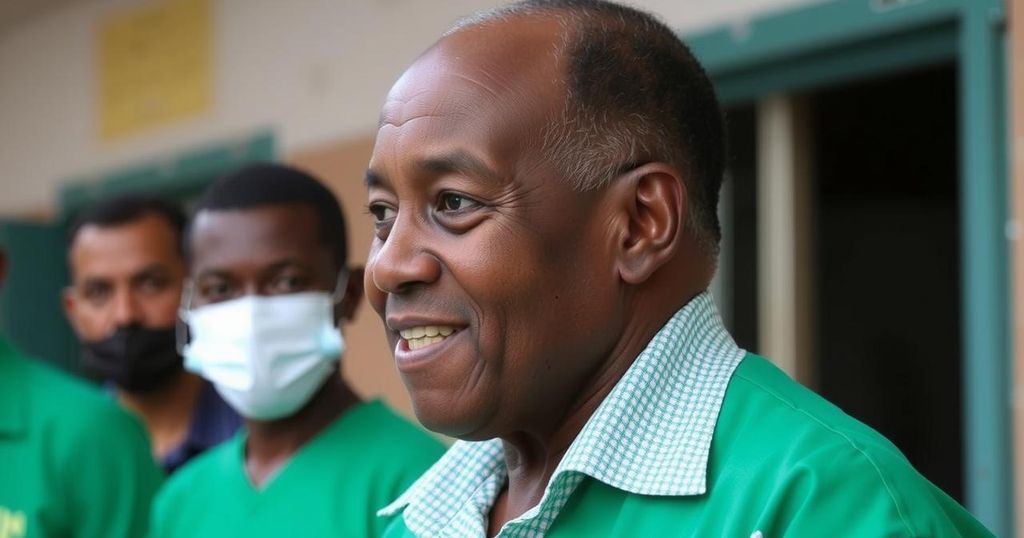Comoros Elections Marked by Opposition Boycott and Controversies
Comoros conducted legislative elections with significant opposition boycotts amid claims of a lack of transparency. Nour El Fath Azali is among the candidates, while various polling booths faced operational issues. Accusations of authoritarianism and electoral fraud have marred the political landscape, following a controversial re-election in January 2024. The ruling party, CRC, is likely to maintain a large presence in the parliament as many constituencies lack opposing candidates.
On Sunday, the Indian Ocean nation of Comoros held elections for lawmakers, amidst a significant boycott by opposition parties asserting that the electoral process lacked transparency. Among the candidates is Nour El Fath Azali, the eldest son of Comorian President Azali Assoumani, who is vying for a position representing a constituency near the capital, Moroni. Reports indicate that several polling stations opened late, attributed to a delay in the arrival of election materials. An observer noted improvised voting setups that compromised voter privacy. Critics raised concerns over Nour’s substantial power, which includes the authority to approve government decrees, while opposition members reported challenges and a history of suppression from the ruling party. This election’s context is further complicated by accusations of authoritarianism following the president’s previous term’s controversial re-election, which sparked protests and violence.
The political landscape in Comoros has been tumultuous since President Azali Assoumani re-established himself in power through a coup in 1999. His administration has faced criticism for its increasingly authoritarian tendencies, culminating in a 2024 election marked by allegations of fraud. Notably, the ruling Convention for the Renewal of the Comoros (CRC) party has maintained dominance over legislative elections, raising alarm among opposition groups. The current electoral process follows a previous boycott in 2020, where the opposition opted not to participate, further consolidating the ruling party’s power. With around 340,000 registered voters, a considerable portion of the electorate remains apprehensive about the integrity of the elections.
In conclusion, the recent elections in Comoros highlight the ongoing struggles between the ruling government and opposition factions. With claims of electoral impropriety and a lack of transparency, the political environment remains precarious. Voter experiences throughout the election process were notably compromised by logistical failures, leading to wider concerns about the integrity of the electoral outcomes. As President Azali continues his rule, the legitimacy of the democratic process will undoubtedly remain under scrutiny.
Original Source: www.barrons.com




Post Comment